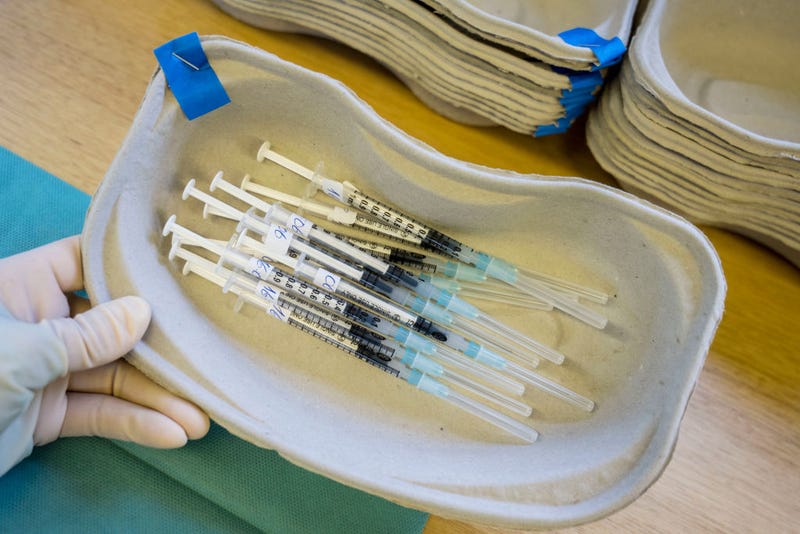
SAN FRANCISCO (KCBS RADIO) – Moderna has released new data echoing what Pfizer recently released – that the new bivalent dose really does hold up well against the BA.5 subvariant of COVID-19.
For more, stream KCBS Radio now.
According to Moderna, the new dose has a five to six-fold improved antibody response against BA.5, compared to the original booster. With Pfizer, it’s more like a four-fold improvement.
The new dose also produces a good response to the new subvariant BQ.1.
"Although there's no absolute correlation with protection there appears to be a good correlation between the neutralizing antibody response and the efficacy – the protections – against disease," said Dr. Dean Blumberg, an infectious disease specialist with UC Davis Health on KCBS Radio's "Ask an Expert" with Melissa Culross on Monday.
"Especially against severe disease, such as that resulting in hospitalization and death," he said.
Like with the previous boosters, these new formulas do help in preventing getting COVID-19, but they’re better at protecting against severe illness.
The protection against infection really only lasts about two to four months before it fades, according to Blumberg.
What is most significant about the new bivalent vaccine booster is its ability to stand up against the new subvariant that’s been circulating in the United States, BQ.1 or BQ.1.1.
"That's really exciting, to be given a vaccine that might protect against variants that really haven’t even developed yet," said Blumberg.
While Moderna hasn't published an exact number on the bivalent vaccine's ability to combat the new subvariant, another study suggested it could be as much as a 10-fold improvement, while another said three-fold.
"The studies do show varying results, but they do show increased responses," he said.
This comes as the holiday season begins to ramp up and cases are likely to increase. But as of right now the number of people actually going out and getting the booster is relatively low.
So far, in the United States only about 10% of those aged five and older have received the new vaccine, and for those most at risk, only 27% have received it to date.
"That's very disappointing – these are the people at highest risk of severe disease, of hospitalization, and for death," said Blumberg. "And we are entering a period where we do expect increased circulation of COVID-19."
DOWNLOAD the Audacy App
SIGN UP and follow KCBS Radio
Facebook | Twitter | Instagram

